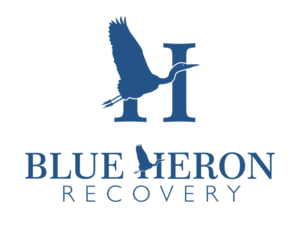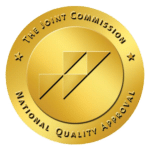If you’ve tried to quit and felt blindsided by withdrawal or nonstop cravings, you’re not alone. Medically Assisted Treatment (MAT) is a proven way to steady the body, lift the fog, and give recovery a fair shot. At Blue Heron Recovery in San Antonio, we offer flexible, outpatient MAT led by board-certified clinicians, with continuity of care even after you finish programming. You can learn more about our approach here: Medically Assisted Treatment in San Antonio, TX.
What Medically Assisted Treatment Actually Does
Withdrawal and cravings aren’t about willpower. They’re the result of real changes in the brain and body. MAT uses FDA-approved medications—paired with therapy and support—to reduce withdrawal symptoms, regulate brain chemistry, and lower the risk of relapse. National health agencies endorse MAT for opioid and alcohol use disorders because it improves retention in care and reduces overdose deaths.
A Quick, Plain-English Breakdown
- Buprenorphine (including long-acting forms) eases withdrawal and cravings for opioids.
- Naltrexone helps block the effects of alcohol and opioids, supporting abstinence.
- Methadone is another evidence-based option for opioid use disorder (offered through specialized programs).
These medications are tools—not crutches. They steady the nervous system, allowing you to focus on therapy, rebuilding routines, and repairing relationships. Evidence shows that MAT reduces mortality and keeps people engaged in treatment for longer periods.
How MAT Works at Blue Heron Recovery
Our Medically Assisted Treatment services are designed for real life. Many programs limit MAT to inpatient settings. We extend MAT to outpatient care, allowing you to work, care for your family, and keep commitments while receiving medical support. You’ll be seen by a board-certified physician and a board-certified psychiatric nurse practitioner experienced in MAT. They can prescribe Vivitrol® (naltrexone), Sublocade® (extended-release buprenorphine), and Suboxone® (buprenorphine/naloxone) as appropriate.
A unique advantage here: you can keep your doctor-patient relationship going even after you graduate. The clinicians’ private practice medical clinic is located right on our campus, making it easy to continue follow-ups without having to start from scratch elsewhere. That continuity builds trust and helps you stay on track.
What Does That Mean For You
- Flexible scheduling through outpatient and evening options so treatment fits your day.
- A consistent medical team that knows your history and goals.
- Integrated care with therapy programs like PHP, IOP, and OP to match your level of need.
Managing Withdrawal: What to Expect in the First Weeks
Withdrawal can be intimidating. MAT helps soften that landing. Your clinician will review your substance use history, current symptoms, medical conditions, and goals. Together, you’ll choose a medication plan and a safe start date (for example, after mild withdrawal begins for buprenorphine). You’ll also map out therapy sessions and check-ins so you’re supported on every front.
During the first few days, people often report:
- Less physical discomfort. Symptoms like chills, muscle aches, and stomach upset become more manageable.
- Clearer thinking. As the nervous system stabilizes, anxiety and fog lift.
- More sleep and energy. Your body starts to reset, and routines feel doable again.
Clinical teams adjust doses, monitor side effects, and add supports like counseling and peer work—all things that make a real difference early on.
Tackling Cravings for the Long Haul
Cravings can show up when you’re stressed, bored, or triggered by people or places. Medically Assisted Treatment reduces the intensity and frequency of cravings so you don’t feel like you’re white-knuckling it every day. That space allows therapy to be effective.
Helpful strategies we reinforce alongside MAT:
- Routine stacking. Tie recovery actions (meds, meetings, journaling) to daily anchors like coffee or lunch.
- Trigger mapping. Identify the when/where of your strongest urges and plan exits and alternatives.
- Body care. Sleep, nutrition, and movement help blunt stress reactivity and enhance the effectiveness of medications.
- Connection. Group therapy and peer support lower shame and remind you you’re not doing this alone.
Staying in treatment matters. Individuals engaged in MAT are more likely to remain in care, and long-acting medications can facilitate adherence, particularly for those with busy schedules.

“Is MAT Just Replacing One Drug With Another?”
It’s a common question. The short answer is no. Medically Assisted Treatment uses medications at therapeutic doses to stabilize brain receptors and reduce harm, not to create intoxication. The goal is to achieve health, safety, and optimal functioning. That’s why federal health agencies call MAT a gold-standard approach for opioid use disorder.
Safety, Monitoring, and Your Say in the Plan
You’ll collaborate with your clinician on dosing, side-effect checks, and duration. Your plan is not a contract—it evolves with your progress. If life changes, your plan can change too. We also follow current guidance for safe, patient-centered care, which includes thorough assessment, informed consent, and privacy protections.
A few practical notes
- Bring questions. Ask how your medication works, when to take it, and what to do if you miss a dose.
- Report changes. New meds, health issues, or stressors can affect how you feel.
- Keep appointments. Consistent follow-ups help fine-tune your care and keep you moving forward.
Why Choose Blue Heron Recovery for Medically Assisted Treatment
Beyond our experienced medical team and outpatient access, you’ll find a calm, supportive setting and programs that meet you where you are—whether you’re transitioning from higher-level care or starting outpatient care. We’re local, hands-on, and built for continuity. Our campus location and integrated services make it easier to focus on the work only you can do, with the right help around you.
Medically Assisted Treatment in San Antonio, TX: Take the First Step
If you’re ready to feel steady, Medically Assisted Treatment can help you move from surviving to healing. Our board-certified clinicians in San Antonio, TX will tailor a plan around your goals, your schedule, and your life. Contact us, or explore our approach and get started here: Medically Assisted Treatment in San Antonio, TX. We’re here to help you manage withdrawal, quiet cravings, and build a recovery that lasts.




